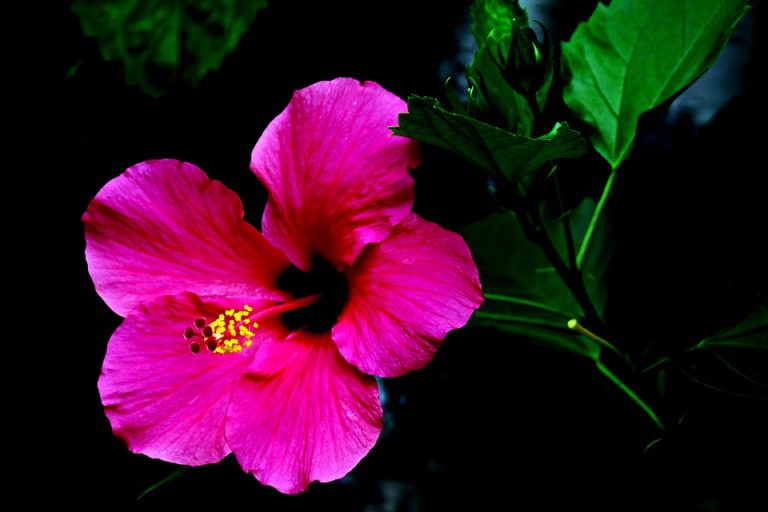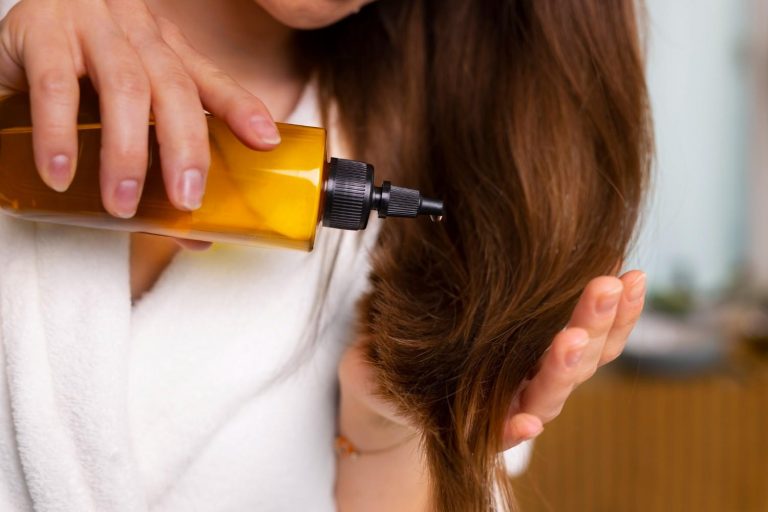Ever looked in the mirror and thought, “Where did all my hair go?” You’re not alone. Hair loss affects millions, and while some might rush to the nearest pharmacy for the latest chemical treatments, there are natural remedies that can help boost hair growth right from the comfort of your home. Let’s explore five of them—because who wouldn’t want a luscious mane without breaking the bank or exposing themselves to harsh chemicals?
Contents
1. Essential Oils: The Aromatic Boost
Essential oils have been used for centuries in various cultures for their therapeutic properties. When it comes to hair growth, two oils stand out: rosemary and peppermint.
How It Works
Rosemary oil is known to stimulate blood circulation to the scalp, which can promote hair growth. A study published in the journal SKINmed found that rosemary oil was as effective as minoxidil (a common hair regrowth treatment) in improving hair growth after six months of use (Panahi et al., 2015).
Peppermint oil, on the other hand, has been shown to enhance hair growth during the anagen (growth) phase. It does this by increasing blood flow and delivering nutrients to hair follicles.
How to Use
- Dilute: Mix a few drops of essential oil with a carrier oil like coconut or jojoba oil.
- Massage: Gently massage the mixture into your scalp. This not only helps with absorption but also promotes relaxation.
- Frequency: Aim for 2-3 times a week for optimal results.
Pros and Cons
- Pros: Natural, pleasant scent, and can be used in combination with other treatments.
- Cons: Some people may experience skin irritation, so it’s essential to do a patch test first.
2. Aloe Vera: The Soothing Wonder
Aloe vera isn’t just for sunburns; it’s a powerhouse for hair health too! Packed with vitamins, minerals, and enzymes, aloe vera can nourish the scalp and promote healthy hair growth.
How It Works
Aloe vera contains proteolytic enzymes that repair dead skin cells on the scalp. Its alkalizing properties also help balance the pH of the scalp, promoting optimal conditions for hair growth.
How to Use
- Direct Application: Scoop out fresh aloe vera gel and apply it directly to your scalp and hair.
- Leave It On: Let it sit for about 30 minutes before rinsing it out with a mild shampoo.
- Regular Use: For best results, use it once a week.
Pros and Cons
- Pros: Natural, soothing, and can help with dandruff.
- Cons: Some may find the texture slimy or hard to wash out.
3. Onion Juice: The Unexpected Hero
Okay, I know what you’re thinking—onion juice? But hear me out. This pungent remedy has some serious hair-growing potential.
How It Works
Onion juice is rich in sulfur, which promotes collagen production and helps in the regeneration of hair follicles. A study published in the Journal of Dermatology found that 74% of participants who applied onion juice to their scalp experienced hair regrowth (Dhurat & Gupta, 2013).
How to Use
- Juicing: Blend a couple of onions and strain the juice.
- Application: Apply the juice to your scalp and leave it on for 30-60 minutes.
- Washing: Rinse with a mild shampoo to help get rid of the odor.
Pros and Cons
- Pros: Effective for many, natural, and inexpensive.
- Cons: Strong odor can be off-putting, and some may experience irritation.
4. Biotin: The Beauty Vitamin
Biotin, also known as vitamin H, is part of the B-vitamin family and is essential for healthy hair growth. It’s often touted as a “miracle” vitamin, but does it really work?
How It Works
Biotin helps in the production of keratin, a protein that makes up the structure of hair. A deficiency in biotin can lead to hair thinning and loss.
How to Use
- Dietary Sources: Incorporate biotin-rich foods such as eggs, nuts, seeds, and leafy greens into your diet.
- Supplements: If your diet isn’t cutting it, consider a biotin supplement after consulting with a healthcare professional.
Pros and Cons
- Pros: Generally safe and beneficial for overall hair health.
- Cons: Over-supplementation can lead to side effects like skin rashes or digestive issues.
5. Scalp Massage: The Simple Touch
Sometimes, the best remedy is the simplest one. Scalp massages can be incredibly beneficial for hair growth.
How It Works
Massaging the scalp increases blood circulation, which delivers more nutrients to hair follicles. It can also reduce stress, a significant contributor to hair loss.
How to Use
- Technique: Use your fingertips to gently massage your scalp in circular motions for about 5-10 minutes daily.
- Add Oils: Consider using essential oils during the massage for added benefits.
Pros and Cons
- Pros: Easy to do, no special ingredients needed, and promotes relaxation.
- Cons: Results may take time, and some might not notice a significant difference.
FAQs
1. How long does it take to see results from these natural remedies?
Results can vary widely depending on the individual and the method used. Generally, you might start seeing improvements within 2-3 months of consistent use.
2. Are there any side effects?
While most natural remedies are safe, some individuals may experience irritation or allergic reactions. Always do a patch test before applying any new substance to your scalp.
3. Can I use multiple remedies at once?
Yes! Many people find success by combining methods, like using essential oils with scalp massages. Just be cautious about overloading your scalp with too many products at once.
4. Do these remedies work for everyone?
Not necessarily. Individual results can vary based on genetics, the underlying cause of hair loss, and how consistently you use the remedies.
Conclusion
Exploring natural remedies for hair growth is an empowering journey. Whether you go for the aromatic essential oils, the soothing aloe vera, or even the unexpected onion juice, each of these methods offers a unique path to healthier hair. As with any health-related endeavor, patience and consistency are key.
So, if you’re tired of hair loss and looking for a more natural approach, give these remedies a shot. You might just find the perfect fit for your hair growth journey. Remember, though: Always consult with a healthcare provider before making significant changes to your health routine.
Disclaimer: This article is for educational purposes only and is not a substitute for professional medical advice. Always consult a qualified healthcare provider before making changes to your health routine.
References
- Dhurat, R., & Gupta, A. K. (2013). A randomized evaluator blinded study of the efficacy of platelet-rich plasma in androgenetic alopecia. Journal of Dermatology, 40(5), 329-334. https://doi.org/10.1111/1346-8138.12110
- Panahi, Y., Mojarad, F., & Sahebkar, A. (2015). The effects of rosemary oil on hair growth in patients with androgenetic alopecia: A randomized clinical trial. SKINmed, 13(3), 161-166. https://www.ncbi.nlm.nih.gov/pmc/articles/PMC4468219/
- Mayo Clinic. (n.d.). Biotin. https://www.mayoclinic.org/drugs-supplements-biotin/art-20363148
- Harvard Health Publishing. (n.d.). Hair loss: A common problem. https://www.health.harvard.edu/newsletter_article/hair-loss-a-common-problem
Get Your FREE Natural Health Guide!
Subscribe now and receive our exclusive ebook packed with natural health tips, practical wellness advice, and easy lifestyle changes, delivered straight to your inbox.




